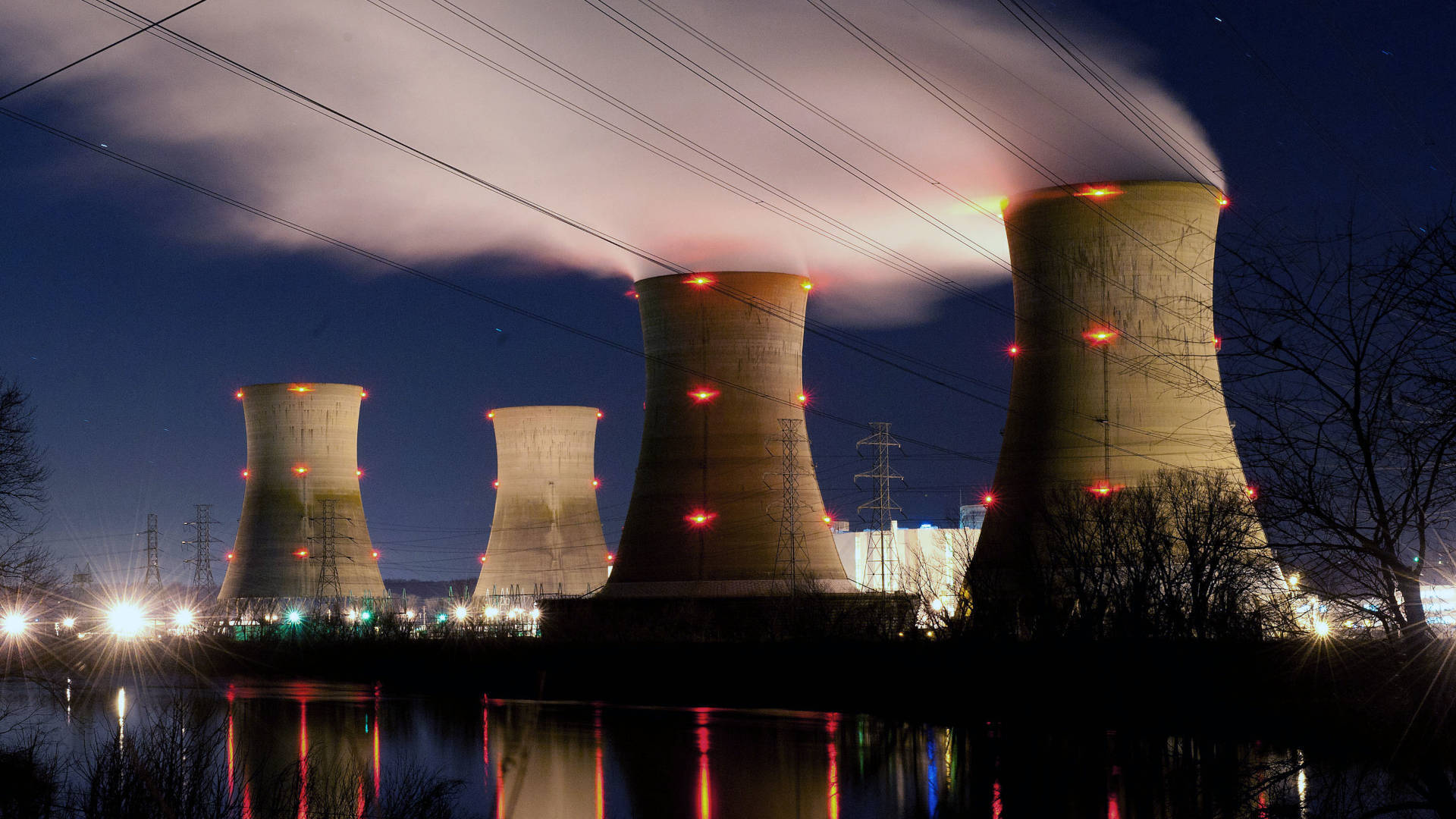a dying and dangerous 20th century technology
I stopped reading there, nuclear is statistically the safest form of energy generation.
And it tries to paint it as bad for the environment in this paragraph:
But the mining, milling, and production of nuclear fuel, as well as the construction and decommissioning of nuclear plants, emit greenhouse gases at levels ranging from 10 to 130 grams of carbon dioxide per kilowatt hour of power — lower than fossil fuels but higher than wind and hydroelectricity (and roughly on par with solar).
So… It’s good then?
The author of this article personally breathed out 800 pounds of CO2 last year. Less than a horse but more than a badger and roughly on par with a kangaroo.
To be fair, it does have the most potential to cause harm if you exclude every kind of fossil fuel. And hydroelectric. That said, there isn’t a chance in hell I’m going to protest fission if the only alternative is more coal/gas.
And yet by KWH produced it’s the safest by a large margin (safer than solar and wind), and that includes Chernobyl happening, arguably pretty close to “worst case”.
Potential is meaningless. Real-world experience has demonstrated it.
Nuclear’s problem is that, when an issue happens, it is so very visible.
The millions of people dying every year to air pollution are far more spread out, so who cares?
You’re more likely to crash in a car, yet people are (generally) far more scared of planes.
Visibility is a very real problem in environmental measures that I rarely see discussed.
The example that comes to mind is Madrid. Over the past few years there have been many measures to divert the traffic from the city centre. At a “visible” level this is great, which results in less pollution in the city centre, less traffic, less noise. All amazing. If you delve a bit deeper though, this hasn’t been backed up properly by additional public transport, or encouraging working from home, or anything like that. So people who work in the area are having to drive more kilometres, so that they can go around the city centre, resulting in more emissions and pollution overall. The catch? It’s in the impoverished areas of the outskirts. Therefore invisible.
The governments look amazing at improving the pollution in the city centres not by addressing it, but by moving it somewhere else. Most times they opt for what is “visibly” good rather than what will actually result in a measurably better outcome. The negative effects of nuclear are very visible, so that weighs a lot in the decisions unfortunately.
Its invisible like tuberculosis deaths. 4000 a day yet nobody cares cos its poor people that are not politicaly usefull dying.
And this is exactly why mass shootings get all the news cycles, but the much more common gang violence doesn’t.
Which is incredibly dumb and why we can’t have nice things. The solutions to the more impactful, everyday issues like car crashes and gang violence are very different from the solutions to more rare, but more “newsworthy” issues like airplane failure and mass shootings.
And energy dense too!
It also requires a literal village to run and maintain.
And that’s the problem, I don’t want to see a nuclear power plant managed by fucking Amazon or Google.Yeah, all those exploding solar panels are a real danger!
Take a look at some stats sometime, nothing comes even close to nuclear safety by KWH produced.
There’s far more involved in solar than just solar panels.
And if we roll out more nuclear plants, the cost to make a new plant would go down as well, resulting in lower cost per KWH over its lifetime.
Solar is cool and should absolutely be a part of the grid, but we shouldn’t be expecting batteries to be our base load supply.
Mounting solar panels on roofs - like all roof work - is dangerous.
Luckily building a nuclear reactor doesn’t have any risks
the reactor produces significantly more energy
deleted by creator
We can reprocess, it’s just cheaper to jam in it a hole and solve the problem once and for all:

deleted by creator
Great, is there a method that eliminates all byproducts of fossil fuels?
It reduces them dramatically, to something we can easily deal with, that’s huge.
deleted by creator
No need for. Solar panels and batteries are at an historically low price and will even become more affordable. There’s simply no economical justification for nuclear energy.
How many solar panels and batteries are needed to power every electrical grid on the planet?
Where do we locate all of the panels and batteries?
Where do we get all of the materials for all of the panels and batteries?
What is the total cost to operate and maintain that global power grid?
What is the lifespan of the grid?
What happens to all of the panels and batteries at end of life, and how much does it cost?
Exactly. Solar panels and batteries can theoretically be recycled, but we generally don’t bother today, and there’s a lot more bulk in dealing with old panels and batteries than spent nuclear fuel rods.
So dealing with the waste of nuclear is a more constant thing, but also much lower volume than something like solar panels or batteries.
I think we need both, but ideally we use something other than batteries for base load supply, and only use it to store excess peak generation (or ideally, use something other than batteries for short-term storage, like hydrogen or hydro pumps).
You also need to think about the space required for these solar farms. I can tell you that I’ve seen some barby forests and animals living there completely wiped out for building solar farms.
When the intent is making money, there are no clean energies…
Firstly, we’ll get there in time.
Secondly, having baseload vastly reduces the amount of batteries needed, and overall is helpful, and nuclear is one of the best baseloads there is.
By any logic we should work on fusion research because it’s the actual solution, but the enemy isn’t nuclear or renewables, it’s fossil fuels, they must be killed as brutally as possible, not just for their ecological impact, but also for their political impact, which may be the most toxic of all.
Imagine the politics of this country if Texas wasn’t “Saudi Oil Money” rich and didn’t try to screw over our politics on a constant basis. They’re the reason we don’t have nuclear already, they’d much rather keep everyone on the dinosaur habit than let us move forward an inch.
deleted by creator
The discussion of nuclear power, much like the discussion of communism, is met with entrenched positions on Lemmy.
Opinion:
Stopped reading there. And based on the comments, I don’t think I’m missing much.
News like these gave me the idea to when I’m eventually making my own Metroidvania, I’ll have a map where you have to prevent a nuclear meltdown on a small-size reactor that powers an AI datacenter…
Or cause it!
Reactor meltdowns are fairly common in Metroid games already, though.
I’ll have a map where you have to prevent a nuclear meltdown
Who would want to play a game where there’s nothing to do?
In every nuclear reactor we’ve ever had issues with it took ignoring engineers or specifically bypassing normal operations procedures to cause.
In your game… the answer would be “do nothing”. Game over, you win.
But the mining, milling, and production of nuclear fuel, as well as the construction and decommissioning of nuclear plants, emit greenhouse gases at levels ranging from 10 to 130 grams of carbon dioxide per kilowatt hour of power — lower than fossil fuels but higher than wind and hydroelectricity (and roughly on par with solar).
That’s interesting. The article they link gives a bit more detail:
These energy intensities translate into greenhouse gas intensities for LWR and HWR of between 10 and 130 g CO2-e/kWhel, with an average of 65 g CO2-e/kWhel.
While these greenhouse gases are expectedly lower than those of fossil technologies (typically 600–1200 g CO2-e/kWhel), they are higher than reported figures for wind turbines and hydroelectricity (around 15–25 g CO2-e/kWhel) and in the order of, or slightly lower than, solar photovoltaic or solar thermal power (around 90 g CO2-e/kWhel).
The wide range for nuclear apparently comes from difficulties in estimating the carbon footprint of mining/processing the uranium, but that nuclear is sort of in the middle of the pack in carbon footprint relative to renewables in spite of the fueling costs is good to know.
I suppose these sort of numbers may change dramatically in years to come. Take solar. A lot of focus seems to be on the efficiency of panels, which would almost certainly lower the carbon cost per unit of energy as it improves, but a breakthrough in panel longevity would also do that in an amortized emissions sort of way.









